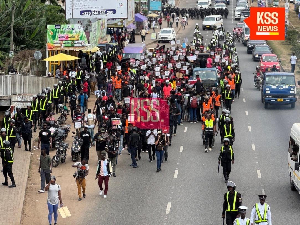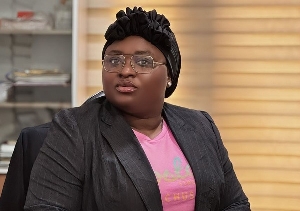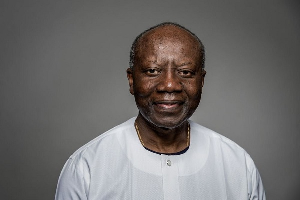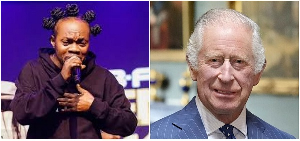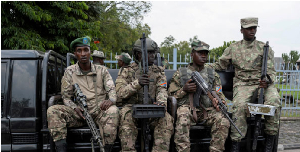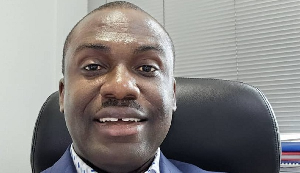Galamsey (Illegal Mining) in Ghana: The Unfair Narrative and the Role of Media, CSOs, and Organized Labour
Illegal mining, locally galamsey, remains one of Ghana's most urgent national challenges. Its detrimental impacts on society, the economy, and the environment are extensively documented. A disquieting narrative has emerged, influenced by organised labour, civil society organisations (CSOs), the media, youth activists, and prominent public figures, as the government struggles to address the issue.
The issue has been oversimplified by these influential groups, which have presented an unbalanced perspective that unjustly targets the current administration while protecting the opposition from accountability. This distorted representation not only distorts the full extent of the crisis but also impedes the pursuit of meaningful solutions.
The galamsey issue has been misrepresented by these groups. They have simplified the crisis and reduced it to a failure of the current government, rather than recognizing its profound complexities, which include economic desperation, political neglect, and institutional frailty. This partial focus fails to acknowledge the systemic factors that have enabled illegal mining to thrive for decades, spanning multiple administrations.
How this approach circumvents the shared responsibility of all stakeholders is what renders it particularly problematic. Galamsey involves local communities, traditional authorities, miners, and even segments of the private sector; it is not a singularly political issue.
The issue is distorted and the development of comprehensive, collaborative solutions is impeded by the reduction of the issue to a blame game that is exclusively focused on the current government. At this critical juncture, it is not only impracticable but also strategically unsound and incongruous to impose the responsibility of resolving the crisis solely on the government.
The government's substantial efforts to combat illicit mining are frequently overlooked by unfair criticisms, particularly from civil society organizations and the media.
The current discourse rarely includes initiatives such as the deployment of military forces to mining regions, the implementation of policy reforms, and the rehabilitation of devastated lands and polluted water bodies. Rather, the government is consistently depicted as complacent, a narrative that unjustly benefits the opposition party while disregarding its role in the crisis.
The broader national interests are undermined by this unflinching directed focus on governmental shortcomings. The tangible progress that has been made is obscured by the selective memory of these groups, who have also minimized the critical roles that local authorities, law enforcement agencies, and members of the public play in the perpetuation of galamsey activities. They continue to obscure the reality that the prevention of illicit mining necessitates the collaboration of all societal segments by concentrating exclusively on the government.
The opposition National Democratic Congress (NDC) is conspicuously overlooked in the current narrative, which is a significant error. The NDC's past failures are rarely discussed, even though galamsey evolved into a national crisis during their tenure.
The organized labour, CSOs and the Media have generated a one-sided critique that is advantageous to the opposition by selectively emphasizing the current administration's perceived deficiencies. This evident prejudice obstructs an open dialogue regarding the causes of the issue and the obligations of both political parties.
The NDC's involvement in the history of illicit mining has been conveniently disregarded, which has fostered a perilous double standard in public discourse. To address galamsey as a national crisis, it is imperative that all political actors, both current and past, be held accountable. Failure to do so not only distorts the public discourse but also undermines endeavours to identify sustainable, long-term solutions.
The prevailing narrative also contains the misleading implication that the galamsey crisis was exclusively a national crisis during the current administration. Illegal mining has a lengthy history in Ghana, and it has been exacerbated by previous governments, such as the NDC. Critics create the deceptive impression that the crisis is a recent development and solely the result of the ruling party's failures by disregarding this historical context. This misrepresentation not only damages the government's reputation but also distorts the public's understanding of the matter and grants the opposition an unjust electoral advantage in this crucial election period.
If the NDC were to regain power, they would also be confronted with the intricacies of galamsey, which cannot be resolved through simplistic rhetoric or political promises.
The government is unable to prevail in the battle against galamsey on its own. To develop sustainable solutions, it is necessary to adopt a collaborative approach that unites miners, local communities, traditional authorities, law enforcement, and civil society.
The potential for genuine progress is being undermined by the current emphasis on blame. The discussion should shift focus to the development of a unified vision for Ghana's economic and environmental future, rather than perpetuating partisan attacks. Oversimplification, dishonesty, and political manoeuvring have usurped the galamsey debate.
The national dialogue has been distorted by organized labour, CSOs, and the media, who have unjustly targeted the current government while allowing the opposition to operate without accountability.
A broader, more candid dialogue is required to genuinely address the galamsey crisis, one that recognizes the intricacy of the matter and the shared responsibility of all parties involved. Ghana can only expect to reverse environmental damage and achieve lasting solutions through collaboration and a fair distribution of accountability.
Isaac Ofori Social Activist and Human Rights Advocate
Opinions of Tuesday, 8 October 2024
Columnist: Isaac Ofori

